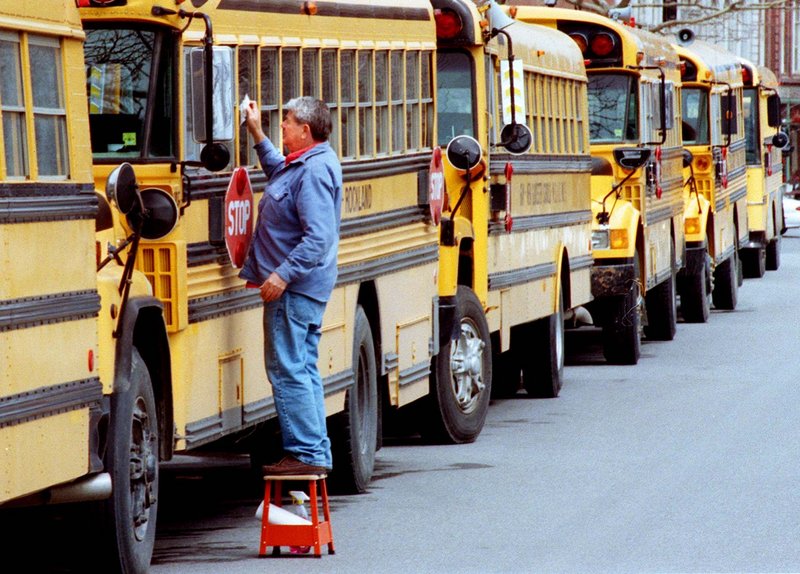PORTLAND – As a school leader of more than 20 years, the last five serving Portland as principal at Deering High School, I have lived through many tight budgets.
Fighting for adequate dollars to support our students has a flow that remains constant over time. I put forth plans to meet student needs, knowing that research demonstrates that money, spent wisely, does make a difference in student achievement.
Most years we get less than I know we need to upgrade labs, improve technology and maintain the instructional resources needed to reach and teach all students. Still, I remained optimistic, knowing that we had the teaching staff, both numbers and quality, to make a difference.
After many years of budget battles, I am now truly scared that we are beginning a trend that, if not met head-on, will result in long-term damage to our schools, our communities and our state. In most school budget years, it is a rare story when a district announces teacher layoffs.
We tighten our belts, defer maintenance, reduce costs in important areas such as textbooks and technology, but maintain the core teaching staff to match our enrollment. In this FY 2011 budget season, the dreaded “pink slip” scenario was played out in a good majority of the 184 school districts throughout Maine. My school and district were no exception.
While enrollment at Deering will go down by about 50 students next school year, we stand to lose 11 staff members, including nine teachers. This is a drop much greater than our enrollment decline dictates and comes at a time when both our percentage of economically disadvantaged students and English Language Learners have doubled in the past three years.
The combination of a huge state budget shortfall that resulted in a reduction to school district’s general purpose aid, and mandates from municipalities calling for no to little property tax increases, has meant school boards and superintendents have to make tough decisions to keep budgets stable in the face of revenue losses and fixed costs increases.
The ramification of widespread staff reductions won’t be known for several years, but common sense tells us that adding hundreds of teachers to the unemployment lines isn’t good for Maine’s economy, and will hurt student achievement. This is not a good move for a state already struggling to raise dismal college graduation rates.
Fortunately, the U.S. Congress is working on ways to help Maine, by moving federal legislation to promote education in our state and spur the economic recovery we need. Specifically, they are debating the Education Jobs Fund, which includes enough investment — $90 million for the state of Maine — to save 1,491 education-related jobs in our schools and communities.
It is desperately needed at a time when education-related jobs are being cut. The Education Jobs Fund is specially earmarked for public K-12 and higher education institutions. This would maintain the current level of investment in public education, and save or create jobs during 2010 and 2011.
It would have the added benefit of keeping schools fully staffed so that class sizes do not swell to levels that will jeopardize efforts to raise student achievement and ensure our students’ readiness. It will help keep school nurses and custodians in our schools at a time when many of our families are suffering financially and creating undue stress on children.
The Education Jobs Fund must be taken up by both the House and the Senate. We need federal help so that Maine can get back on the road to recovery now and build the lasting infrastructure needed to ensure our communities can continue to grow and prosper for the long term.
Education cuts would scar our young people, potentially deprive thousands of college entry, increase class sizes and further diminish our long-term prosperity prospects. While some argue that we spend too much on education in Maine, the fact is that we are fifth out of six in New England and ninth out of 10 in the Northeast in per-pupil spending.
Our higher costs result from higher housing and energy costs and a declining enrollment. While we need to continue to wring efficiency from our system, we are in fact true to Maine’s ethic as frugal and thoughtful about our spending.
We simply need to maintain our promise to provide an excellent education for all of Maine’s students. Investment in public education benefits our children, and is the best investment for Maine’s economy.
Send questions/comments to the editors.



Success. Please wait for the page to reload. If the page does not reload within 5 seconds, please refresh the page.
Enter your email and password to access comments.
Hi, to comment on stories you must . This profile is in addition to your subscription and website login.
Already have a commenting profile? .
Invalid username/password.
Please check your email to confirm and complete your registration.
Only subscribers are eligible to post comments. Please subscribe or login first for digital access. Here’s why.
Use the form below to reset your password. When you've submitted your account email, we will send an email with a reset code.